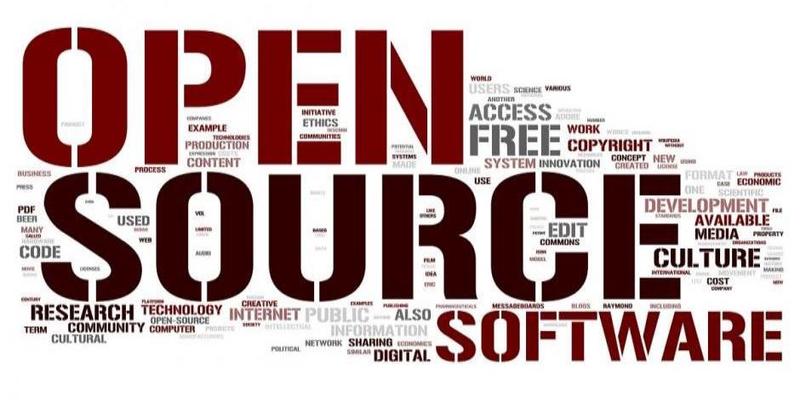BREAK THE CHAIN, EMBRACE OPENNESS: DISCOVER THE POWER OF FOSS SOCIAL MEDIA PLATFORMS.
Are you tired at the mercy of big tech giants and the monopoly played by them to control over your social media experience? It’s high time you should start concerning about your data privacy. Decode Digital Democracy and embrace the power of Free and Open Source Software (FOSS) Social Media Platforms!!
What is FOSS Social Media?
FOSS social media refers to social networking platforms built on open-source software. Unlike proprietary platforms like Facebook or Twitter, FOSS social media networks are developed collaboratively by a global community of volunteers. The source code is freely available for anyone to inspect, modify, and distribute, which ensures transparency and accountability. FOSS social media platforms, such as Mastodon and Diaspora, operate on the principles of freedom, transparency, and community collaboration.

Why FOSS Social Media Matters
User Control: One of the primary reasons FOSS social media matters is the emphasis on user control. Unlike mainstream platforms, where algorithms often dictate what users see, FOSS social media platforms put users in the driver’s seat. You have the freedom to customize your experience, choose who you connect with, and decide what content you want to see.
Quest for Privacy: Privacy and data ownership are paramount in FOSS social media platforms. Many of these platforms incorporate features like end-to-end encryption, providing you with secure environment for your conversations. Plus, being community-driven, FOSS platforms evolve based on the needs and desires of the users themselves. They typically collect minimal personal information and give users control over their data. This stands in stark contrast to some mainstream platforms that profit from users’ data without their explicit consent.

Decentralization: Many FOSS social media platforms are decentralized, meaning they don’t rely on a single, centralized server. Instead, they operate on a federated model, where multiple independent instances (servers) can communicate with each other. This decentralization reduces the risk of censorship and promotes diversity in online communities.
Transparency and Security: FOSS social media platforms are open-source, which means their code is available for scrutiny by anyone. This transparency enhances security because potential vulnerabilities can be identified and patched quickly. It also fosters trust within the community.
Noteworthy FOSS Social Media Platforms
- Mastodon: Mastodon is a decentralized microblogging platform that resembles Twitter. Users can join different instances (servers) or host their own, allowing for a diverse range of communities and interests. With Mastodon’s decentralized model, you can connect with others across multiple instances, each with its own rules and moderation policies.

Diaspora: Diaspora is a decentralized social network that emphasizes privacy. Users connect through “pods,” which are independently hosted servers, giving them control over their data.
Plume: Plume is a federated blogging platform, allowing users to create and share their blogs. It promotes content creation and discussion in a decentralized manner.
Friendica: Friendica is a versatile social networking platform that integrates with other social networks, offering a unified experience while preserving user privacy.
Hubzilla: Hubzilla is a versatile platform that combines social networking with content management features. It supports file sharing, wikis, and more, making it suitable for various online community needs.
GNU Social: An older but still actively developed project, GNU Social, provides a decentralized microblogging platform. It emphasizes user control and data ownership.
Minds: Minds is a hybrid platform that combines FOSS principles with a traditional social media approach. It offers features like encrypted chat and rewards users for their contributions.
Lemmy: Inspired by Reddit, Lemmy is a FOSS federated link aggregator. It enables users to create their communities (instances) and share links and discussions in a decentralized manner.
Remember that the FOSS social media landscape is dynamic, with new platforms emerging and existing ones evolving. Exploring these alternatives allows users to find the platform that best suits their preferences and values, fostering a more diverse and user-centric digital environment.
Breaking the Chains of Proprietary Platforms

Traditional social media platforms often come at the cost of user privacy and control. They thrive on collecting and monetizing user data. In contrast, FOSS social media platforms are founded on principles that reject the idea of proprietary control. These platforms adhere to open-source principles, making their source code freely available for scrutiny and modification.
The Road Ahead
FOSS social media platforms offer a compelling alternative to mainstream social media. They provide users with greater control over their online presence, prioritize privacy and data ownership, and promote decentralized communication. As concerns about privacy and data security continue to grow, FOSS social media may become an increasingly attractive option for individuals and communities seeking a more transparent and user-centric online experience.
While FOSS social media platforms offer many advantages, they also face challenges such as limited mainstream recognition and the need for technical expertise to set up and maintain instances. However, as awareness of these platforms grows, and as more people seek alternatives to the status quo, FOSS social media may well play a significant role in shaping the future of online social networking. Plus, being community-driven, FOSS platforms evolve based on the needs and desires of the users themselves.
Overcoming Challenges and Paving the Way Forward
Transitioning to FOSS social media can be a challenge due to the familiarity of mainstream platforms. However, this movement is gaining momentum. Communities of developers and users work tirelessly to improve these platforms. With time, FOSS social media will become more user-friendly, and its user base will grow. FOSS social media projects continue to evolve and grow, propelled by passionate communities of developers and users alike.
Conclusion
In an era where our digital presence expands with every click, the choices we make about the platforms we employ bear profound consequences. FOSS social media offers a path to a more transparent, ethical, and user-centric digital world. By embracing these alternatives, individuals can reclaim control of their online experiences and contribute to a more accountable and democratic digital realm.
Embracing FOSS (Free and Open-Source Software) social media represents more than just taking control of our online lives; it signifies a movement towards a more inclusive, transparent, and secure digital world. By navigating the ever-evolving landscape of social media and exploring FOSS platforms, we embark on an exciting path where users regain autonomy, prioritize privacy, and foster thriving online communities in a decentralized, harmonious environment. In doing so, you reclaim control over your online presence, free from concerns about data sale and algorithm-driven content curation, and become an integral part of a vibrant community that values openness, privacy, and user empowerment.
Credits: Jumana Faby Khan (Content), Akhil T (Tech)